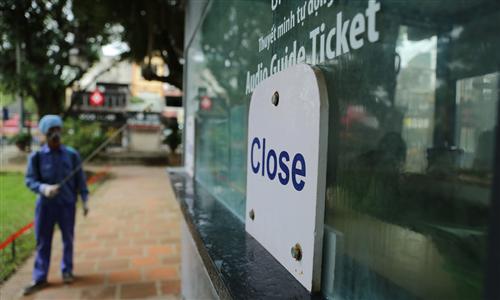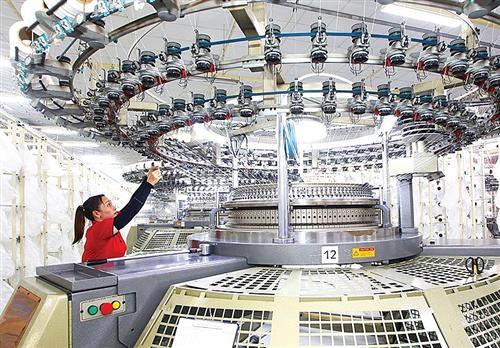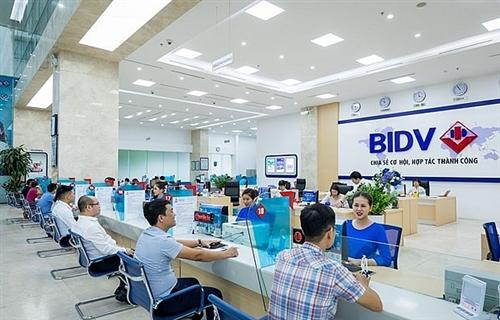Viet Nam’s GDP hits 10-year low in the first quarter
Viet Nam’s GDP hits 10-year low in the first quarter
Viet Nam’s gross domestic product (GDP) expanded by 3.82 per cent in the first quarter of this year – the lowest growth rate posted in the past 10 years – showing the tremendous impact the novel coronavirus (COVID-19) pandemic is having on the country’s economy. 
This number was released by the General Statistics Office (GSO) on Friday in Ha Noi.
Overall, all sectors expanded at a much lower pace compared to previous years due to stagnation in major economies and disruptions to global supply and demand.
The industry and construction sector had the highest growth rate of 5.15 per cent, contributing 58.4 per cent to overall GDP growth, of which the processing and manufacturing industry increased by 7.12 per cent.
Meanwhile, the service sector expanded 3.27 per cent, making up 41.4 per cent of overall growth, of which wholesale and retail increased by 5.69 per cent and finance, banking and insurance rose by 7.19 per cent.
The agriculture, forestry and fishery sector witnessed the lowest growth rate of just 0.08 per cent, contributing 0.2 per cent to overall growth.
According to GSO’s general director Nguyen Bich Lam, these were encouraging results in the face of the world economic downturn, plunging oil prices and rising geopolitical tensions, especially the outbreak of COVID-19 which is affecting economies around the world.
“The Vietnamese Government and the Prime Minister have put their priority on the prevention and suppression of the virus, sacrificing economic benefits to ensure the lives and health of the people. In this context, positive economic expansion shows the effectiveness of the Government’s policies,” Lam said.
According to the GSO, in the first quarter, the agriculture, forestry and fishery sector accounted for 10.11 per cent of total output, while industrial and construction production made up 35.52 per cent and the service sectors accounted for 43.71 per cent.
The agriculture sector in the first quarter suffered from the impacts of African swine fever, drought and saline intrusion in the Mekong Delta region. The risk of avian influenza and the complicated developments of COVID-19 also had adverse impacts on production and import-exports of agricultural products.
The business community was hard-hit by COVID-19, which has seen a soaring number of enterprises temporarily closed (18,600 enterprises, a year-on-year increase of 26 per cent).
Trade and service activities in the first three months were also less active as consumers reduced shopping, travel and eating out. The number of international visitors to Viet Nam in the first quarter decreased by 18.1 per cent compared to the same period last year.
Meanwhile, the import and export turnover of many Vietnamese products also saw declines as COVID-19 spread among Viet Nam’s major trade partners such as China, South Korea, Japan, the EU and the United States.
Total import-export turnover of goods in the first quarter reached US$115.34 billion, down 0.7 per cent over the same period last year, of which exports increased by 0.5 per cent and imports decreased by 1.9 per cent.
The trade surplus in the first quarter of this year has been estimated at $2.8 billion.
CPI down 0.72 per cent in March
The impacts of the COVID-19 pandemic and the oil price war and abundant supply of poultry were the main reasons that drove the consumer price index (CPI) in March down by 0.72 per cent compared to February, the lowest in the past five years.
Ending March, CPI increased by 5.56 per cent compared to the same period last year and was the highest rise in the last five years.
Seven of the 11 groups of commodities and services decreased, of which the transport group declined the steepest by 4.87 per cent, followed by culture, entertainment and tourism, down 1.4 per cent; and food and catering services, down 0.43 per cent.
Four groups still increased, including household appliances and goods, medicine and healthcare, education and other goods and services with trivial growth of between 0.04 per cent and 0.16 per cent.






















